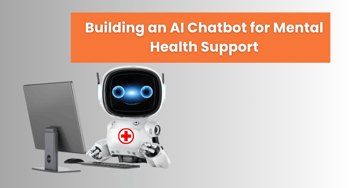Performance Prediction and Employee Assessments with AI
This blog discusses the utilization of artificial intelligence (AI) for forecasting performance and conducting employee assessments. It explores how AI technologies can enhance the prediction of individual and organizational performance, as well as streamline the evaluation of employee effectiveness and skills.

The efficient management of human resources is a crucial aspect of any organization's success. Predicting employee performance and conducting assessments are fundamental HR tasks that can benefit significantly from the integration of Artificial Intelligence (AI).
In this article, we will explore the significance of AI in predicting employee performance and conducting assessments, along with detailed technical implementations using Node.js. Additionally, discover how OpenAI development services can further enhance these AI-driven HR solutions.
The Role of AI in Human Resources
AI has rapidly evolved to play a pivotal role in HR processes. By analyzing vast amounts of data, AI can provide valuable insights into employee performance, identify areas for improvement, and optimize workforce management.
Building an AI-Powered Employee Performance Prediction System
Let's delve into the technical aspects of creating an AI-powered employee performance prediction system using Node.js. In this example, we'll focus on building a simple performance prediction model using historical data.
Node.js Implementation
1. Set Up Your Development Environment
Start by setting up your Node.js development environment and installing the required packages.
2. Create an Express Server
Set up an Express.js server to handle performance prediction requests.
3. Create the Frontend
Develop a user-friendly frontend for your performance prediction system using HTML, CSS, and JavaScript. The frontend should allow HR professionals to input employee data and receive performance predictions.
4. Training Data
In practice, you should use actual employee data for model training to make accurate predictions.
5. Run Your App
Run your Node.js server using the following command:
Your AI-powered employee performance prediction system should now be accessible at `http://localhost:3000` or the specified port.
AI-Enhanced Employee Assessments
In this example, we've demonstrated how AI can be applied to predict employee performance based on historical data. This system can assist HR professionals in making more informed decisions regarding employee assessments and career development.
To fully leverage these insights, it's crucial to consistently track employee work patterns, engagement, and time management. Such tracking not only identifies top performers but also uncovers potential issues early, enabling proactive intervention. Tools like an employee work hours tracking app enhance visibility and support data-driven evaluations, effectively complementing AI-driven insights to boost team efficiency.
Considerations and Best Practices
1. Data Privacy
Ensure that employee data is anonymized and handled with strict privacy measures to comply with data protection regulations.
2. Model Training
Use diverse and representative datasets for training your AI models to improve prediction accuracy.
3. Feedback Loop
Incorporate regular feedback from HR professionals to refine and improve the prediction model.
4. Interpretability
Make AI model predictions interpretable to HR professionals by providing insights into the factors influencing predictions.
5. Ethical Considerations
Be aware of and address potential biases in data and algorithms to ensure fair assessments.
Conclusion
AI has the potential to transform HR processes, enhancing the accuracy of employee performance predictions and assessments. By leveraging Node.js and machine learning, organizations can create AI-powered systems that contribute to effective talent management and decision-making.
Ready to Explore More About Our AI Solutions?
Get custom solutions, recommendations, estimates, confidentiality & same day response guaranteed!
As AI technology continues to advance, its role in HR will become increasingly critical for maximizing workforce potential and organizational success.


%201-1.webp?width=148&height=74&name=our%20work%20(2)%201-1.webp)


.png?width=344&height=101&name=Mask%20group%20(5).png)
















